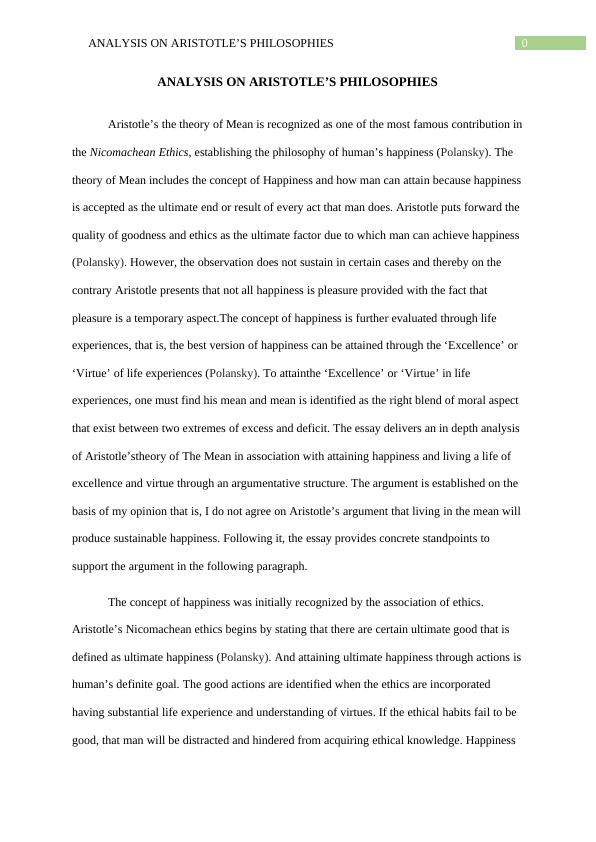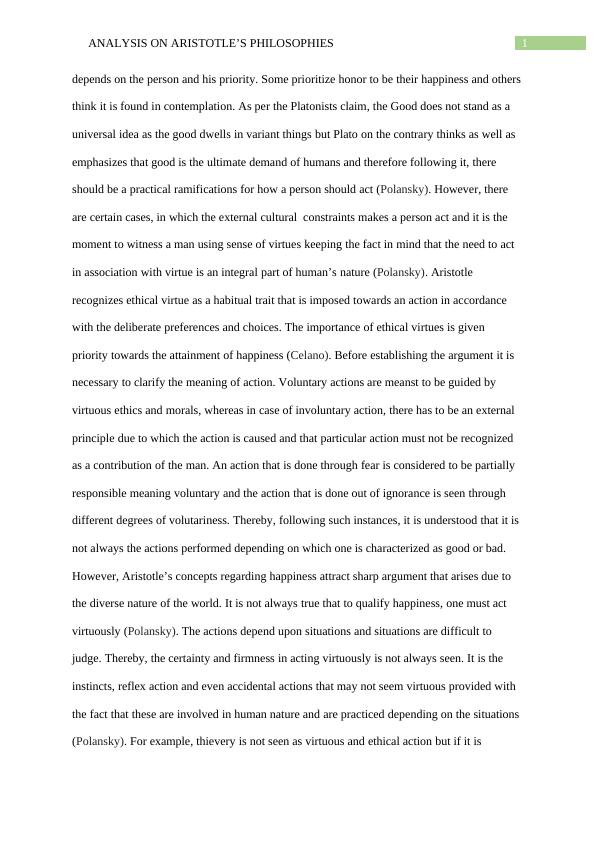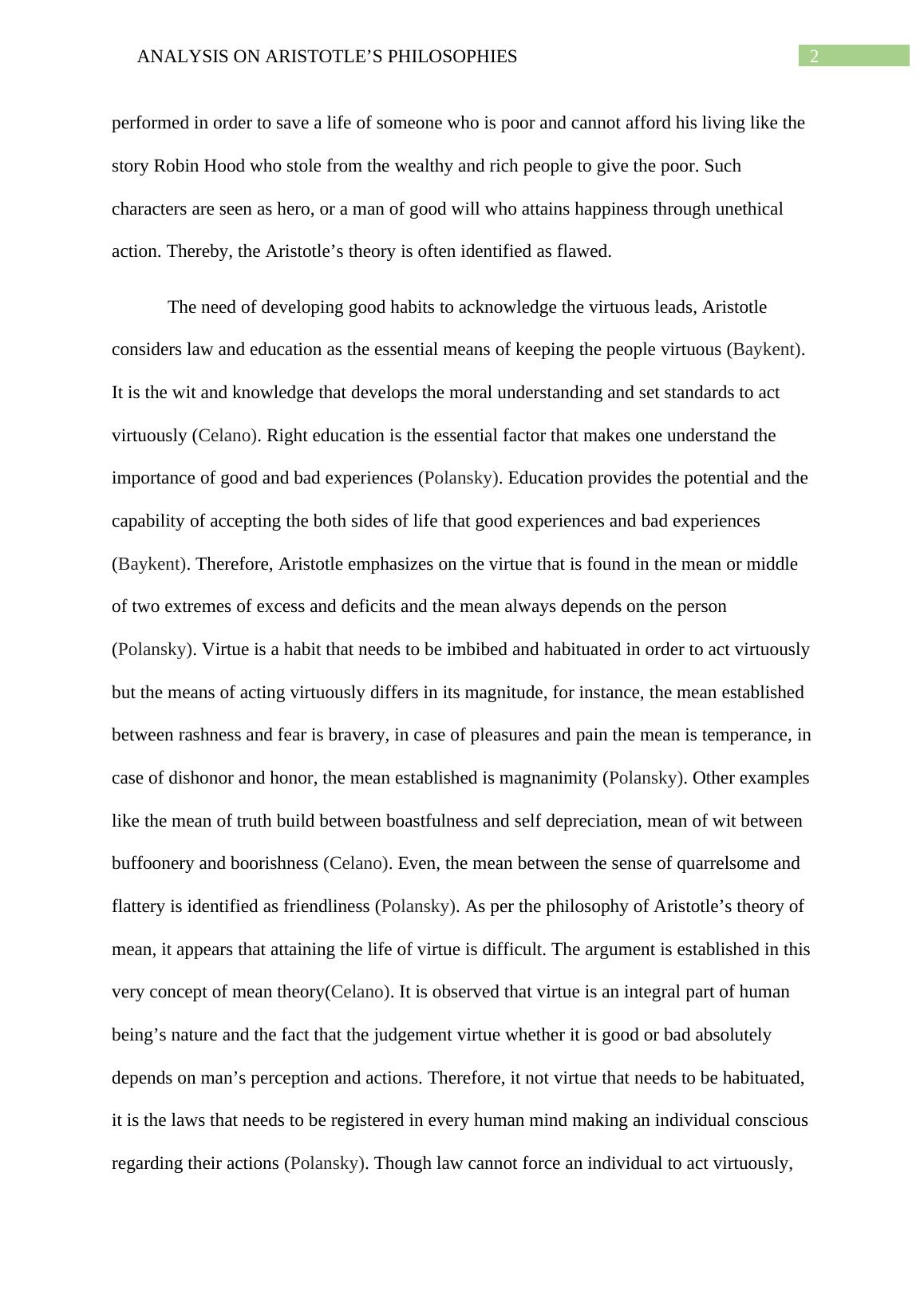Aristotle's Philosophy of Happiness
Analyze Aristotle's main points of his argument for his ethical theory of The Mean/The Middle in relationship to acquiring happiness and living a virtuous life.
7 Pages2182 Words89 Views
Added on 2022-08-16
About This Document
However, the observation does not sustain in certain cases and thereby on the contrary Aristotle presents that not all happiness is pleasure provided with the fact that pleasure is a temporary aspect.The concept of happiness is further evaluated through life experiences, that is, the best version of happiness can be attained through the ‘Excellence’ or ‘Virtue’ of life experiences (Polansky).
Aristotle's Philosophy of Happiness
Analyze Aristotle's main points of his argument for his ethical theory of The Mean/The Middle in relationship to acquiring happiness and living a virtuous life.
Added on 2022-08-16
ShareRelated Documents
End of preview
Want to access all the pages? Upload your documents or become a member.
Aristotle's Nicomachean Ethics: An Ethical System or Not?
|4
|959
|69
Aristotle on Nature of Ethics
|4
|705
|363
Comparison of Aristotle and Plato's Works: Nicomachean Ethics and The Allegory of the Cave
|5
|1310
|73
Comparison of Plato and Aristotle's Works: The Allegory of the Cave and Nicomachean Ethics
|5
|1436
|313
Assignment on Sociology - Aristotle’s ethics
|5
|975
|15
Concept of Virtue Ethics Assignment
|4
|1012
|191



